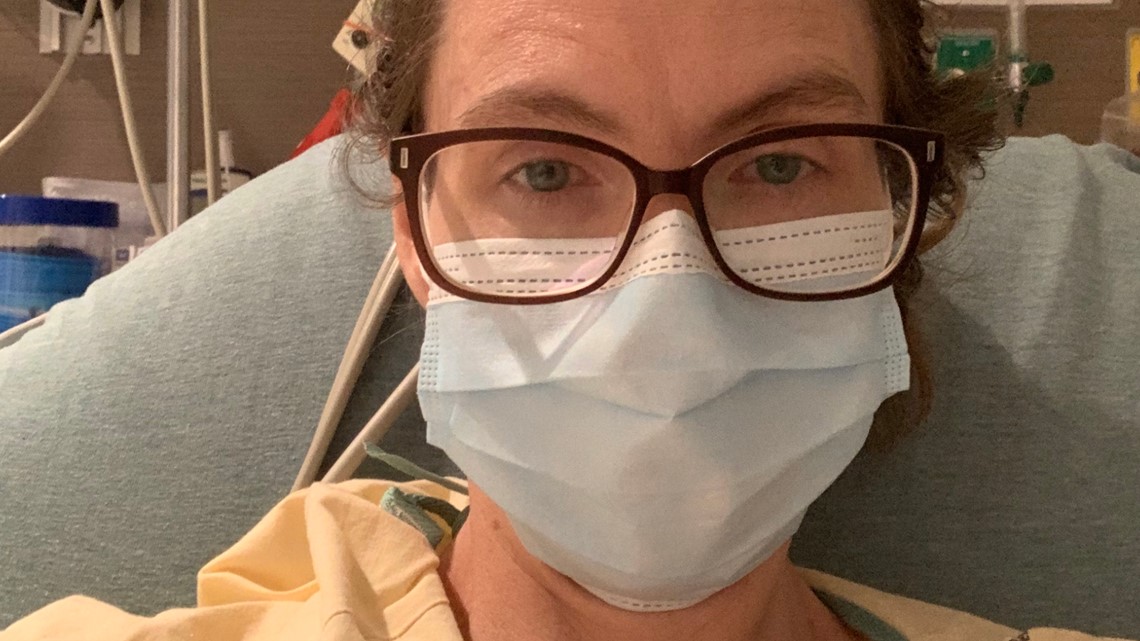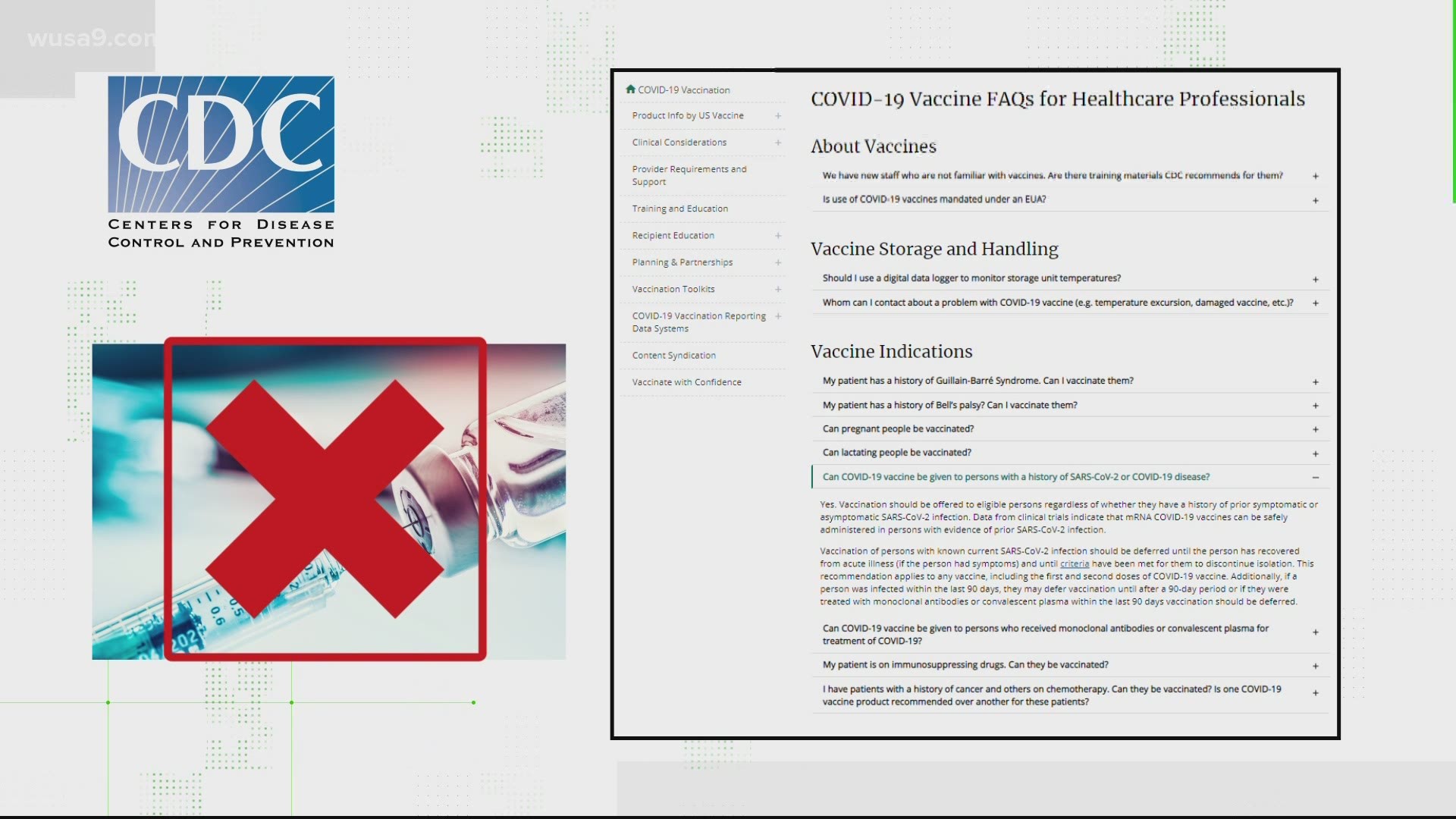WASHINGTON — THE QUESTION:
Are COVID patients suffering long-term effects?
THE ANSWER:
Yes, and doctors don’t know how long they could last.
OUR SOURCES:
- Dr. Walter Koroshetz, Director of the National Institute of Neurological Disorders & Strokes
- Dr. David Putrino, Director of Rehabilitation Innovation at Mount Sinai Health System
- Dr. Greg Vanichkachorn, Division of Preventive, Occupational, and Aerospace Medicine at Mayo Clinic
- Dr. Tae Chung, Assistant Professor of Physical Medicine and Rehabilitation at Johns Hopkins Medicine
- Michaelene Carlton, a long-hauler COVID patient
- Keri Kae Gebo, a long-hauler COVID patient
HOW WE GOT THERE:
Nearly a year after contracting COVID, Michaelene Carlton is still suffering.
“My everyday life has completely changed,” Carlton said.
When she contracted the virus last March, her symptoms were mild. A month later, her health suddenly declined.
The 47-year-old is still out of work on disability, with daily headaches and extreme fatigue. Her heart races when she stands up. Once an avid runner, she now struggles to get off the couch. She can’t do much with her family, and only leaves home for appointments with her doctors.
“Being able to do everyday activities is really difficult,” Carlton said, fighting back tears. “I'm a mom. I'm supposed to take care of my children. I'm supposed to protect them. I'm supposed to make their lives better. And I feel like I can't do that.”
A look at Post-Acute COVID symptoms


Doctors are seeing a stunning number of COVID patients develop new symptoms weeks or months after contracting the virus, even those with only mild symptoms during the initial infection.
Several doctors estimate at least 10% of all COVID patients are battling Post-Acute COVID Syndrome (PACS).
“A projected number of individuals with Post-Acute COVID Syndrome may be as high as two million,” Dr. David Putrino said. “And even higher if the number of infections continues to climb."
Dr. Putrino runs a COVID rehab program at Mount Sinai in New York.
“It is a really debilitating syndrome that has a number of persistent symptoms,” Dr. Putrino said.
Those symptoms can include extreme fatigue, exercise intolerance, racing heart rate, shortness of breath, brain fog, difficulty concentrating and more.
'You have to do a lot of heavy lifting'


For months, Keri Kae Gebo couldn’t get off the couch by herself, suffering daily dizziness, heart-pounding and neuromuscular complications. She hasn’t worked since September and has dealt with a long list of symptoms.
“The scariest one was when I woke up to my throat closing with no rhyme or reason,” Gebo said. “This happened off and on for probably two months straight.”
She’s slowly improving with the help of therapeutic treatments and over-the-counter medications, but she still suffers from some neurological complications.
“Taking care of myself is really hard,” Gebo said. “I have learned that as a patient, you have to do a lot of heavy lifting and advocate for yourself.”
Dr. Tae Chung is treating Michaelene Carlton and Keri Kae Gebo at Johns Hopkins.
“Those symptoms have been frequently dismissed as nonspecific or psychological problems,” Dr. Chung said. “I'm glad to see that more and more doctors are taking this seriously.”
His team is developing treatment strategies for dozens of long-hauler patients.
“We try aggressive hydration, and specific forms of physical exercises, along with some drug treatments,” Dr. Chung said. “Overall, they tend to respond pretty well to those treatments.”
Symptom management is step one. Dr. Putrino’s strategies include compression stockings to stabilize heart rate, as well as lifestyle adjustments like avoiding large meals and hot showers, which can trigger symptoms. Then patients receive three months of physical therapy.
“At that point, people are still not feeling where they were before COVID,” Dr. Putrino said.
What triggers the symptoms? Doctors are still trying to pinpoint


Doctors don’t know what’s causing these long COVID symptoms.
“That’s what we’re trying to get at,” Dr. Walter Koroshetz said.
Dr. Koroshetz is the director of the National Institute of Neurological Disorders & Stroke at the National Institutes of Health. Congress has approved $1.15 billion for NIH to study long COVID.
Dr. Koroshetz thinks an issue with the immune system may be largely responsible for PACS.
“Anything that activates your immune system is going to cause a lot of these symptoms,” he said. “We need to know what's leftover from that acute inflammatory response to the virus. And also, are there compensatory changes that occurred due to the virus that are now causing symptoms.”
Dr. Greg Vanichkachorn treats long COVID patients at the Mayo Clinic. He estimates 10 to 25 percent of COVID patients could suffer PACS symptoms. He believes the condition is connected to an autoimmune hyper-inflammatory state.
“It's almost like if the body is still trying to fight an infection, but the infection is not there,” Dr. Vanichkachorn said. “But right now, there is just not enough research at all to really pinpoint what is causing this.”
Many of the symptoms connected to the autonomic nervous system, the part of the nervous system you can’t control, which regulates heartbeat, organ function and much more.
“The immune system, if it goes through an intense experience, can knock the autonomic nervous system out of balance,” Dr. Putrino said. “And now we need to slowly recondition that nervous system back to a healthy state.”
Doctors see similarities between PACS and other post-viral fatigue syndromes, but the scale of COVID infection makes the current caseload particularly alarming. Doctors don’t know if patients could face certain symptoms, like chronic fatigue, for years or forever.
“There may be people who, instead of getting better and better over time, they hit a plateau, and they don't get better anymore,” Dr. Koroshetz said, specifically referencing those suffering chronic fatigue.
“Unfortunately, that is a possibility,” Dr. Vanichkachorn added. “There are some patients who are now a year out from their infection who are still dealing with symptoms, and their symptoms do appear very similar to chronic fatigue. This may in turn be a long-term condition for these patients. But that said, even if it is a long-term condition, there is treatment out there that can help patients manage their condition and stay in control of their life versus their condition controlling them.”
Right now, little long COVID research is published.
A survey published by the CDC found 35% of COVID patients with mild illness had not returned to their normal state of health 2-3 weeks after testing positive.
A study out of France found 20% of COVID patients will show prolonged symptoms, primarily fatigue, for at least three months.
BOTTOM LINE:
Many COVID patients are suffering long-term effects, and doctors don’t know how long those symptoms could last.
“I have a lot of hope,” Keri Kae Gebo said. “But at the same time, there’s always that fear that I could wake up with my throat closing again. Or I might not be able to get up off the couch again.”


